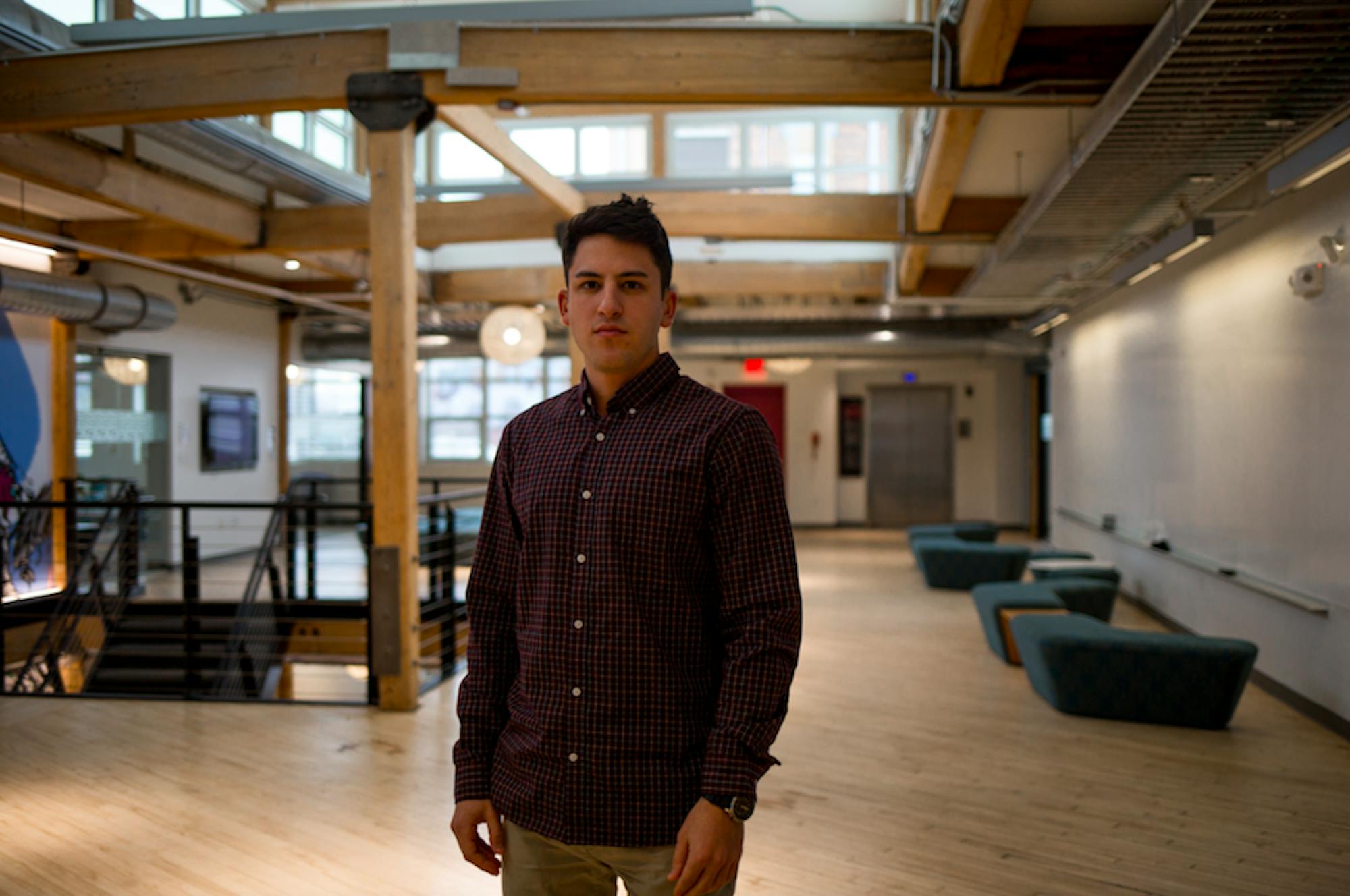Money is not everything, but it is something we can't do without. Factors like efficiency, practicality and technology have led to an evolving perspective of what can be used for currency: from barter, to coins, to paper money, to gold standards, to its newest form, cryptocurrencies.
The new Tufts Blockchain and Cryptocurrency Club, co-founded by juniors Daniel Grichevsky and David Lackner, wants to offer a space on campus to discuss this new frontier in finance and technology, according to its chief financial officer Zackary MacQueen.
“We want to educate the Tufts student body on blockchain technologies and discuss its broad applications," MacQueen, a senior, said.
According to its leadership, the club is divided into three pillars -- hardware, software and investment -- and it hopes to attract members of both technical and non-technical backgrounds. Chief marketing officer Isabel Machlin expressed her hope that the club will draw people of all identities and backgrounds.
“I [especially] want to encourage other women, regardless of their major, to check out our club and see if one of these angles resonates with them," Machlin, a junior, said.
Secretary Daniel Kaltman talked about the club's educational focus for the immediate future.
"[We hope to] foster discussions and presentations based on real world blockchain applications, like artificial intelligence, voting, supply chains and finance," Kaltman, a junior, said. "We are already in contact with alumni and professors who will be interested in presenting at our meetings."
Machlin added that it is important for college students to stay on top of developments that will have a major impact on the future.
"[Blockchain technology] will revolutionize the way that our financial, political, medical and social institutions work,” she said.
Grichevsky, the club's vice president, shared that the club is choosing to focus on education first because even as investment in cryptocurrencies has been growing exponentially, people are investing money into something that they do not fully understand.
“This is causing many of the issues that we are facing right now -- the 'Bitcoin bubble' for example,” he said.
Recently, the news about the 'Bitcoin bubble' bursting spread through the internet, leaving many confused as to what Bitcoin entails, why the bubble was created and why it burst. MacQueen suggested that this bubble is comparable to the dot-com bubble of the late 1990s.
“The ideas behind the technology are revolutionary but are not ready for mainstream adoption,” MacQueen said. "I think in 10 years there will be a cryptocoin that replicates the transaction time, security and adoption that is comparable to dollars."
MacQueen explained that blockchains are digital ledgers in which transactions made in cryptocurrencies are recorded and are public to all those who hold the currency.
“Blockchain has the power to revolutionize the internet by providing security and continuity,” MacQueen said.
According to Machlin, one of the most important characteristics of blockchains is decentralization, which she explained as the absence of a central bank monitoring transactions or the amount of currency in the market.
“Just to give you an example, blockchain has the ability to make financial intermediaries obsolete by connecting sellers and buyers directly,” she said.
Kaltman further explained that the fine distinction between blockchain and Bitcoin frequently confuses people.
“Bitcoin is nothing without blockchain technology, but blockchain technology is something without Bitcoin,” Kaltman said. “[Bitcoin] is extremely volatile, but that may have to do with the number of new investors entering the market daily."
He shared that the club's leadership feels like it is the time to create this community because of the attention the subject is receiving on social media and news.
"It has come to a point where we are seeing many prominent companies come forward to start integrating blockchain technology into their infrastructure," Kaltman said.
Some members of the organization invest in cryptocurrency. For example, Kaltman shared that he holds investments in more than 15 different cryptocurrencies, such as Nano, 0x and SingularityNET. MacQueen explained that a majority of people likely invest in Bitcoin, Ethereum and Litecoin.
“Most trading will happen with these three cryptocurrencies simply because these are easily accessible,” MacQueen said.
Lackner, the club's president, gave his take on why students invest in cryptocurrencies.
"[Most people who invest] enjoy the anonymity behind the technology and keep their investments to themselves," he said.
Aside from investment, people can also get involved in the cryptocurrency space through mining. Sophomore Sebastian Coates, who is familiar with blockchain technology, explained that miners are rewarded with cryptocurrency coins by compiling transactions into the blockchain. He added that he chooses to participate in mining rather than investing.
The club seeks to be an educational platform on a subject that is of growing importance, and hopes to encourage being informed about technology, even if the end goal is not investment, according to Lackner.
"The ‘Bitcoin bubble’ may pop one day, but blockchain technology will still be around, making the world a better place," Lackner said.
A new club for students to learn about blockchain technology, cryptocurrency

Dan Grichevsky, founder of Tufts' first cryptocurrency trading club, poses for a portrait in The Collaborative Learning and Innovation Complex on Feb. 12, 2018.





